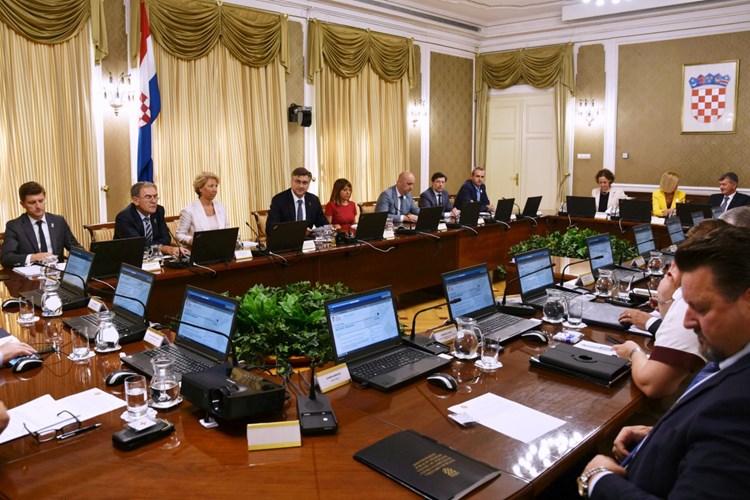- Published: 30.08.2018.
Amendments to the Maritime Code will strengthen the competitiveness of the shipping sector and empower sailor's status
The government on Thursday adopted the proposed amendments to the Maritime Code designed to boost the competitiveness of the Croatian shipping sector and empower the status of sailors on the domestic and foreign markets as well as reduce administrative barriers and pave the way for the full digitisation of the maritime sector.
Outlining the proposed amendments, to what has been described as one more reform-oriented law in the maritime sector, the minister of maritime affairs, transport and infrastructure, Oleg Butkovic, told the cabinet that these reform moves would "make the Croatian flag more attractive for foreign owners to register their vessels in the (Croatian) register, notably large yachts."
This will also adjust the national maritime legislation to the new solutions in the European Union and to international treaties signed by Croatia, the minister said.
He explained that the models of registering vessels would be modernised, and that the register would be fully digitised with the centralised data pool in that e-register.
A tonnage tax regime for yachts will be also introduced, and all this will make the Croatian register more attractive to foreign vessels.
This will also facilitate longer stays of vessels in Croatia, and enable higher consumption, Butkovic said.
Consequently, a positive financial effect is certain and will have an impact on ship construction and repair activities, having in mind that yachts spend up to 10% of their value on regular annual mainetenance, the minister said.
The amended legislation will also wrap up the social reform for employees in the maritime sector, according to Butkovic's explanation.
The government sent the parliament a bill on data and information in the health care system, which is designed to harmonise legislation on the management of data and information in the health care system and their processing at the national level as well as at the EU and international level.
The bill is designed to ensure a comprehensive and efficient use of health care data and information and help produce quality public health data.
The government also sent to the parliament a bill on the implementation of the European Parliament and European Council Regulation of 16 April 2014 on clinical trials for drugs used by humans and on putting out of force a 2001 directive whereby only a partially harmonised approach to regulating clinical trials in the EU was achieved.
The bill will simplify procedures for the submission of documentation regarding requests for the approval of clinical trials by making it possible to submit a single file on an EU Portal as a single entry point for submission of data and information relating to clinical trials.
Health Minister Milan Kujundzic said that the bill would facilitate administrative procedures regarding the approval of clinical drug trials and member-states will cooperate via the said portal in evaluating each trial.
The new approach will encourage the involvement of the highest possible number of member-states, thus boosting clinical drug trials and their competitiveness.
As regards clinical trial inspections, EU controls will be introduced and the EC is preparing, in cooperation with the member-states, a programme of checks to make sure they oversee compliance with the relevant EU regulation, said the minister.
The government green-lighted the Interior Ministry's plan to provide 3,000 bullet-proof vests for police officers in the period from 2019 to 2028 and thus, a total of HRK 53.9 million or 5.39 million annually is to be set aside from the budget in that period.
"This will help solve one of the burning issues at the ministry of the interior," Minister Davor Bozinovic said.
He corroborated his statement with statistics on the use of force by law enforcement authorities in the last ten years, showing that in that period the police resorted to the use of force in 38,411 cases. In those interventions two police officers were killed, 3,130 were wounded, with 57 of them sustaining grave injuries.
Police officers were exposed to 1,773 attacks, and in those incidents, three police officers were killed and 1,250 were injured, with 36 sustaining severe bodily injuries, said Bozinovic.
He said that the new plan was prepared to improve ballistic protection of the police.
Text: Hina
